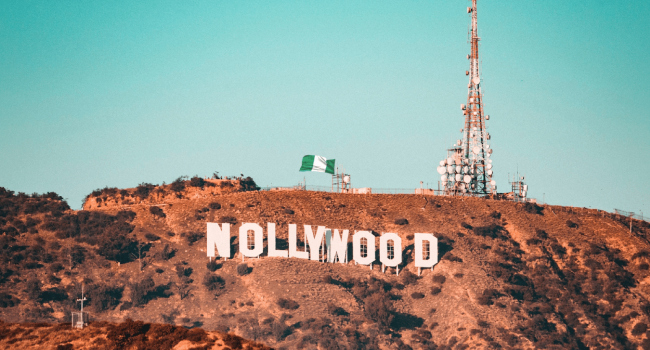It has taken nearly 80 years, but for the first time, a Nigerian film will be shown in an official selection slot at the esteemed Cannes Film Festival on Sunday.
After decades of being dismissed for its prolific yet low-budget crowd-pleasers, Nollywood — Nigeria’s bustling film industry based in Lagos, producing up to five films daily — is finally enjoying a moment in the global spotlight.
A recent report noted that Nigerian producers acknowledge their struggle to expand viewership beyond Africa and its diaspora, despite outproducing Hollywood in sheer volume.
For years, Nigerian audiences have eagerly consumed Nollywood’s flood of dramas focused on love, poverty, religion, and corruption — often interwoven with the supernatural and the tension between tradition and modernity.
Renowned more for quantity than quality, many of these films are made at a frenetic pace on minimal budgets.
However, that reputation — a remnant of the camcorder era — may be shifting with My Father’s Shadow, the first Nigerian film to be selected for an official slot at Cannes, the pinnacle of arthouse cinema.
“Being in competition for the first time ever shows that Nigerian cinema has truly come of age,” said Prince Baba Agba, a cultural adviser to President Bola Tinubu, attending the premiere in Cannes.
A Defining Era
Directed by Akinola Davies, My Father’s Shadow is set during the pivotal 1993 military coup, a moment when hopes for democracy were dashed as General Sani Abacha seized power following an annulled election.
Davies calls it a “lost chance” — when Nigerians’ dreams were abruptly taken away. His semi-autobiographical story follows two young boys trailing their father through Lagos as the crisis unfolds. The film features British-Nigerian actor Sope Dirisu of Gangs of London fame.
According to Agba, this isn’t a one-off success.
Editi Effiong’s crime thriller The Black Book topped Netflix’s global charts last year, even reaching number one in South Korea.
“We’ve had films at major festivals and won prizes at Sundance,” Agba added, citing Shine Your Eyes (well-received in Berlin) and Eyimofe (This Is My Desire), which was picked up by the esteemed Criterion Collection.
“That film was made entirely in Nigeria, with Nigerian producers and funding,” he emphasised.
Though Nollywood continues to produce large volumes of films, it now spans every tier — from micro-budget projects to million-dollar productions, all brimming with the soul, heart and spirit of Nigeria.
Hope for the Future
Pending tax incentives for filmmakers, currently moving through Parliament, could prove transformative, boosting Nollywood’s international presence via streaming platforms and co-productions.
American streamers began showing interest during the pandemic, with Netflix acquiring titles like Blood Sisters, Man of God, and the musical Ayinla. Local platforms also flourished, especially in the north’s Hausa-language Kannywood, centred in Kano.
Facing Hurdles
However, challenges remain. Amazon shut down its African operations last year, and Netflix is reportedly scaling back, despite maintaining a public face of continuity.
Still, local giants are stepping up. The Ebonylife Group, a key Nollywood player, is preparing to launch its own streaming platform. “We’ll start small and grow. We can’t wait for others to do it for us,” said founder Mo Abudu, who’s also opening a Nigerian cultural centre in London later this year.
Agba acknowledged significant technological and infrastructure issues, particularly with mobile networks, as most films are watched on phones. But there’s progress.
“We aim to double the number of cinema screens to 300. Brazil, with a similar population, has over 3,000,” he noted.
Alongside Afrobeats music, Nollywood is Nigeria’s foremost tool of soft power.
A testament to its growing influence: when The Hollywood Reporter released its list of the “40 Most Influential Women in International Film” ahead of Cannes, Mo Abudu was at the top.



